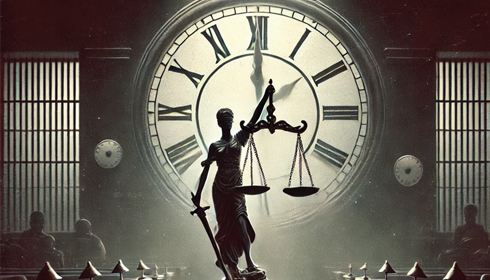
Kolkata's Cry for Justice: Will the Upcoming Verdict Bring Closure to the Family of the Slain Doctor?
In a major development, Sealdah Sessions Court has completed the trial for the horrific rape and murder of a female doctor at Kolkata's R.G. Kar Medical College and Hospital and slated the pronouncement of verdict on January 18. This case, which has shocked the medical community and citizens alike, has been on trial for the past two months, beginning November 11. The Central Bureau of Investigation (CBI) had previously submitted a chargesheet against only one offender, Sanjoy Roy, a civic volunteer who was apprehended based on CCTV evidence. The investigativeagency has demanded the most severe punishment for him.
However, the defence lawyer has vehemently challenged the CBI's claim, claiming that his client is being wrongly implicated and that the case is contrived. In court, the defence argued that there was no evidence of struggle on the victim's body and that her clothes were still intact, casting doubt on the prosecution's case. The lawyer also questioned whether the CBI's proof was sufficient.
Despite these assertions, the CBI maintains that all available evidence, including forensic reports and expert opinions, show that the accused was capable of conducting the act on his own. However, the victim's parents do not agree. They have asked the court to carry out a more comprehensive investigation, asserting that the crime implicated more individuals. The hearing took place behind closed doors.
On August 9, the emergency department's seminar hall revealed the doctor's body. Kolkata Police handled the first inquiry and arrested Roy the next day. The CBI eventually took over the matter. The CCTV footage captured the accused entering and exiting the seminar hall on the night of the incident.
The terrible act aroused indignation among junior doctors, who have been protesting since the beginning, demanding justice and safety measures in medical facilities. They have organised several demonstrations in recent months, including a march from College Street to Shyambazar. Their scepticism towards the investigation has grown much stronger. Many people believe the authorities are protecting the more powerful individuals involved in the case.
Aparna Sen, a renowned actress and activist, has joined the initiative, as have other prominent icons. Speaking at a public event, she declared, "The safety of women in the workplace requires immediate systemic transformation. This is not about a single event, but rather the greater issue of women's security in our society." She also stated that the campaign will continue and evolve based on public feedback, as it is a people's movement.
Junior doctor Debashis Haldar expressed similar concerns, asking why high officials such as the previous principal of R.G. Kar and the officer-in-charge of the Tala police station had not been even tried despite significant allegations. "Is this ineptitude, or is there a political understanding at work? "We don't know," he said.
The protests have now become more organised under the title of 'Nagarik Chetna,' a citizen-led campaign that demands workplace safety for women, police reform, secure public transportation, and school-based awareness programs. We wrote a formal letter outlining these demands to Chief Minister Mamata Banerjee and forwarded copies to key government officials.
The movement has received support from a variety of sectors, including cinema, academia, and agriculture. The letter has 50 signatories, including filmmakers Kamaleshwar Mukherjee and Aniruddha Roy Chowdhury, actors Parambrata Chatterjee and Konkona Sen Sharma, and conservationists Banani Kakkar and Pradeep Kakkar. They maintain that the protests are not politically driven but rather a struggle for justice and institutional change.
Meanwhile, activist Rimjhim Sinha is leading another group that aims to expand the campaign from Kolkata to rural areas. They feel that gender-based violence and structural failings require a broader response. The group wants to put pressure on the administration to implement long-term reforms.
As the final verdict approaches, the public eagerly seeks justice. For many, this case represents a larger struggle for women's protection and responsibility in the system. The movement continues to expand, indicating that the need for justice is not going away anytime soon.